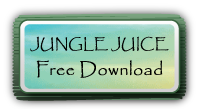Herbal Medicine
“The difference between an herb and a weed is a judgement.”– Gudrun Penselin
What is Herbal Medicine?
 Herbal medicine uses plants as medicines and is the most ancient healing art known to man. According to the World Health Organization 85% of the world’s population still uses herbs as the main form of medical treatment.
Herbal medicine uses plants as medicines and is the most ancient healing art known to man. According to the World Health Organization 85% of the world’s population still uses herbs as the main form of medical treatment.
One of the underlying principles of herbal medicine is the understanding, that the “whole is greater than the sum of its parts.” This means isolated constituents (chemical components) in a plant may elicit a specific effect; however, when the herb is taken as a whole, all constituents work together in synergy, which results in a greater or a different outcome than would be anticipated according to the individual components alone.
In addition, herbal medicine focuses on stimulating the body’s own healing mechanisms, therefore providing support as the body heals itself from any condition causing an imbalance. When practiced properly, herbal medicine will address the cause of dis-ease rather than focusing on the symptoms, unless a symptomatic approach is indicated.
As the result of their individual properties as well as the combination of their constituents, herbs have unique properties which result in specific actions on the body. This knowledge is utilized when working with individual herbs or herbal formulations of several plants. Herbs may be taken as a preventative measure to strengthen the body; in acute stages or chronic conditions they help to relieve symptoms and at the same time encourage the body in its own healing process.
Even though herbs are primarily used to influence our physical body, they undeniably have a powerful effect on the emotions and the spirit as well. This is a wonderful property because true healing requires the treatment on all levels of our beings even if we are not conscious of this.
The Traditional Use of Herbs
Herbal Medicine, the oldest form of medicine, has been practiced for thousands of years. Papyrus manuscripts from ancient Egypt dating back to the year of 2,500 B.C. give lists of medicinal plants and their uses. Chinese tradition goes back even further in history. Today, this age-old wisdom is supplemented by our increased knowledge of the body in physiology, anatomy and pathology as well as other sciences.
Many plants have been and still are the origin and source of a wide range of prescription drugs. For example quinine, a derivative of the Cinchona tree bark, is the basis of drugs treating for malaria. Some herbs have provided a model for the synthesis of similar substances manufactured in laboratories such as the White Willow, which contains salicylic acid and eventually has been replaced by the synthetic drug aspirin.
Is Herbal Medicine Safe?
Generally speaking, herbs are very safe. However allergic reactions are possible just as foods and medicines may trigger reactions in certain individuals. Therefore as a safety precaution it is advisable to always start out with a dose much lower than the one recommended and increase the dose gradually to the recommended amount. It is important to be aware that there are wide individual variations in regards to proper dosages of herbal medicines.
For the most part herbs are non-invasive and work in harmony with the body’s own healing powers and severe side-effects are rare.
Occasionally herbs can interfere with prescription drugs; therefore when in doubt always consult with a qualified herbal practitioner.
How are Herbs Being Taken?
The simplest form of taking herbs is in the way of food. Make your foods your medicines! Herbs may also be taken internally as teas, tinctures, syrups and capsules. Externally they may be applied in the form of a cream, lotion, poultice, compress, infused oil or steam inhalation. The form of application chosen will vary with each client depending on factors such as condition and personality.
What Illnesses can be Treated with Herbs?
In varying degrees herbs provide support to the body and relief of symptoms in any type of condition including acute and chronic cases; however herbal medicine, just like other healing modalities, cannot give guarantees for a cure. Frequently other lifestyle changes are required alongside the herbal treatment protocol.
Can I Take Herbs at the Same Time as Prescription Drugs?
Currently more research is being conducted into the interaction between herbs and prescription drugs. Occasionally there may be an interaction but in the majority of cases both forms can be taken safely and effectively at the same time. However, when you are on prescription medication and intend to take herbs at the same time, it is advisable that you consult a professionally trained herbalist or ask your doctor for advice.
“We do not have to abandon the achievements of medical science to date. Rather we need a different way of organizing our knowledge, to bring it in line with ancient truths, and strive for a grand synthesis of the new and the old, a hybrid that vigorously does justice to both.”
– Simon Mills
Who May Benefit from Taking Herbs?
Choosing the proper herb for a person will take into consideration the age, personality and state of health of each individual. Since herbs have different potencies and applications anyone may benefit from taking herbal remedies. The dosage and frequency are also adjusted to the needs of each individual. Infants, children, adults, seniors, animals and plants can all enjoy the gifts the plant world gives so freely to us!
Please contact Gudrun for any of her services or additional information.
Over 25 years of experience as a practitioner and teacher.
Email: gudrun@rainbowhealing.ca
Phone: 780-532-2464




Follow Us!